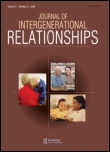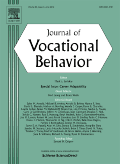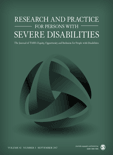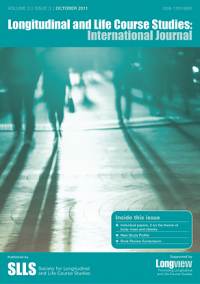
Advances in Life Course Research
Scope & Guideline
Illuminating the Journey of Human Development
Introduction
Aims and Scopes
- Life Course Methodologies:
The journal utilizes diverse methodologies in life course research, including longitudinal studies, qualitative analyses, and mixed-method approaches, to provide comprehensive insights into life transitions and trajectories. - Impact of Socioeconomic Factors:
A core focus is on how socioeconomic status influences various life outcomes, such as health, education, and family dynamics, revealing the interconnectedness of social stratification and individual experiences. - Intergenerational Perspectives:
The journal often explores intergenerational influences on life course outcomes, addressing how family structures, parental behaviors, and social policies impact subsequent generations. - Transitions and Trajectories:
It examines significant life transitions such as marriage, parenthood, migration, and retirement, analyzing how these events shape individuals' paths and wellbeing throughout their lives. - Social Networks and Relationships:
Research often includes the role of social networks and relationships in shaping life course experiences, emphasizing the importance of social support and community ties.
Trending and Emerging
- Impact of Economic Uncertainty:
An increasing focus on how economic factors such as unemployment, economic crises, and precarious employment influence life transitions and wellbeing highlights the relevance of macroeconomic conditions in life course research. - Health Inequalities Across the Life Course:
Emerging themes include the exploration of health inequalities, particularly how early life conditions and socioeconomic status affect health trajectories from childhood through adulthood. - Diversity in Family Forms and Parenting:
Research is increasingly addressing diverse family structures and parenting styles, examining how variations in family dynamics impact child development and adult outcomes. - Intersectionality and Life Course Outcomes:
There is a growing emphasis on intersectional approaches that consider how overlapping social identities (e.g., gender, race, class) affect life course experiences and transitions. - Technology and Life Course Transitions:
Recent studies are exploring the role of digital technology in shaping life course transitions, particularly among younger generations navigating education, employment, and social relationships.
Declining or Waning
- Traditional Family Structures:
Research on traditional family structures, such as marriage and nuclear family dynamics, appears to be waning as scholars increasingly explore diverse family forms and non-traditional arrangements. - Static Models of Life Course Analysis:
There has been a noticeable decrease in studies employing static models of life course analysis, with a shift towards dynamic and longitudinal approaches that capture the fluidity of life transitions. - Single-Cohort Studies:
The prevalence of single-cohort studies is declining, as researchers are moving towards multi-cohort analyses that provide richer comparative insights across different generations. - Deterministic Views on Life Outcomes:
There is a diminishing focus on deterministic views that link specific life events to fixed outcomes, with a growing appreciation for the complexity and variability of individual life courses.
Similar Journals

Journal of Population Ageing
Charting New Territories in Population Ageing ResearchThe Journal of Population Ageing, published by SPRINGER INT PUBL AG, stands as a prominent platform for the exploration and dissemination of research within the fields of demography, geography, and sociology. With an ISSN of 1874-7884 and an E-ISSN of 1874-7876, this journal navigates the complexities of population ageing, a vital topic as societies worldwide confront the implications of an ageing demographic. The journal boasts impressive Scopus rankings, including the 30th rank in Demography and a 78th percentile in Sociology and Political Science, emphasizing its significant role in academic discourse. It is highly regarded in its Q2 category quartiles for Demography, Geography, Planning and Development, and Sociology and Political Science, showcasing its relevance and scholarly impact. Although not an open-access publication, the journal's carefully curated articles aim to inform and advance knowledge, making it an invaluable resource for researchers, professionals, and students invested in understanding the multifaceted challenges associated with an ageing population. With its comprehensive scope and commitment to quality, the Journal of Population Ageing continues to contribute meaningfully to the evolving conversation on demographic trends and their societal implications.

Journal of Intergenerational Relationships
Connecting Generations Through Rigorous ResearchThe Journal of Intergenerational Relationships, published by Routledge Journals, Taylor & Francis Ltd, is a premier academic platform dedicated to exploring the dynamic interactions between different generations. With an ISSN of 1535-0770 and E-ISSN of 1535-0932, this journal has established itself as a vital resource in the fields of archaeology, geriatrics, gerontology, sociology, social psychology, and life-course studies. The journal is particularly esteemed for its rigorous research, currently holding a Q1 rank in Archaeology and competitive rankings across various social sciences categories. Its contributions span both theoretical and practical implications, addressing critical issues such as aging, family relationships, and community dynamics. Published continuously since 2003, the journal plays an essential role in academic discourse, offering researchers, professionals, and students insightful analyses and innovative perspectives on intergenerational interactions. While it operates under a subscription-based model, the journal's commitment to advancing knowledge in this vital area ensures it remains a significant touchstone for ongoing research and discussion.

JOURNAL OF VOCATIONAL BEHAVIOR
Advancing understanding in vocational psychology.JOURNAL OF VOCATIONAL BEHAVIOR, published by Academic Press Inc Elsevier Science, stands as a premier outlet for scholarly discourse in the fields of applied psychology, education, lifespan studies, and organizational behavior. With an impressive impact factor and a consistent ranking within the top quartiles (Q1) across multiple categories for 2023, this journal serves as an essential resource for researchers, practitioners, and students seeking to enhance their understanding of vocational behavior and its implications in diverse settings. The journal has been publishing since its inception in 1971 and continues to provide a vital platform for innovative research that informs both theory and practice, enabling professionals to address the complexities of workforce dynamics in an ever-evolving landscape. Notably, the journal is recognized for its rigorous peer-review process and impactful contributions, ensuring that every article presents cutting-edge findings and promotes evidence-based practices. Although it does not offer open-access options, its importance and relevance in the academic community make it an indispensable reference point for those dedicated to advancing knowledge in vocational studies.

History of the Family
Illuminating Family Histories for a Deeper Sociological InsightHistory of the Family, published by Routledge Journals, Taylor & Francis Ltd, is a leading academic journal that provides a critical platform for scholarly discourse in the field of family history. With an ISSN of 1081-602X and an e-ISSN of 1873-5398, this journal has effectively converged its influential research from 1996 to 2024, making it a longstanding resource for historians, sociologists, and social scientists dedicated to understanding familial structures and their evolution across cultures and periods. Recognized for its academic rigor, History of the Family features a Q1 quartile classification in History and ranks impressively within the top percentiles in various related fields, including the 95th percentile in Arts and Humanities - History. While not an Open Access journal, it maintains robust access options for institutions and researchers alike. Readers can expect high-quality articles that contribute to the critical analysis of family dynamics, making it essential reading for anyone engaged in historical and social science research.

Journal of Happiness Studies
Advancing Understanding of Well-BeingThe Journal of Happiness Studies, published by SPRINGER, stands as a pivotal resource in the field of social sciences, focusing on the empirical and theoretical aspects of happiness, well-being, and life satisfaction. With an impressive Q1 ranking in the 2023 Social Sciences (Miscellaneous) category and a remarkable 96th percentile ranking according to Scopus, this journal provides a reputable platform for scholars and practitioners pursuing innovative research in happiness measurement and its multifaceted implications. Since its inception in 2001 and through continuous publication until 2024, the journal has fostered a rigorous exchange of ideas and methodologies, catering to a diverse audience eager to advance understanding in this vital area of study. Notably, it operates in a non-open access model, allowing for higher editorial standards and comprehensive peer review processes, further enhancing the quality of published works. Researchers, students, and professionals interested in the nuances of happiness and its socioeconomic impacts will find this journal an essential addition to their academic resources.

RESEARCH AND PRACTICE FOR PERSONS WITH SEVERE DISABILITIES
Innovating solutions for persons with severe disabilities.RESEARCH AND PRACTICE FOR PERSONS WITH SEVERE DISABILITIES, published by SAGE Publications Inc, is a premier academic journal dedicated to advancing the understanding and enhancement of quality of life for individuals with severe disabilities. Since its inception in 1975, it has provided a critical platform for groundbreaking research and innovative practices within the fields of health professions, public health, and social psychology. With a commendable impact factor and a recognition of being placed in the Q1 quartile for Health Professions and Q2 for both Public Health and Social Psychology, this journal is a vital resource for researchers, clinicians, and policymakers alike. The journal not only disseminates scholarly articles that explore evidence-based interventions but also emphasizes the importance of community engagement and policy advocacy. By fostering a multidisciplinary dialogue, it aims to inform best practices and promote inclusivity for persons with severe disabilities. Access to the journal's rich archives and contemporary articles is streamlined, making it an indispensable tool in the scholarly community. For further information and to explore current research, visit the journal's page on the SAGE Publications website.

Applied Research in Quality of Life
Empowering Knowledge to Enrich ExistenceApplied Research in Quality of Life, published by Springer, stands as a pivotal platform for scholarship in the domain of life-span and life-course studies. With an ISSN of 1871-2584 and an E-ISSN of 1871-2576, this journal is recognized for its rigorous peer-reviewed research contributing to the understanding of quality of life across different stages of human development. As a testament to its impact, the journal boasts a 2023 Scopus rank of 11 out of 63 in its category, positioning it in the 83rd percentile, while also achieving a Q2 quartile ranking. Focusing on a diverse array of topics, the journal invites researchers, professionals, and students to explore innovative methodologies and findings that enhance societal well-being. With its commitment to advancing quality of life studies, from its inception in 2006 through to the present, Applied Research in Quality of Life is essential for those seeking to contribute meaningfully to the field.

Longitudinal and Life Course Studies
Advancing Insights into Life's TransitionsLongitudinal and Life Course Studies, published by Bristol University Press & Policy Press, is a leading academic journal dedicated to advancing the field of life-span and life-course research. With an ISSN of 1757-9597, this journal is recognized for its contribution to the understanding of human development across various stages of life. Since its inception in 2014, it has become a crucial resource for researchers and professionals, offering a platform for high-quality, peer-reviewed articles that explore longitudinal analyses and their applications in social sciences. With an impact factor reflective of its Q3 quartile standing in the 2023 categorization of life-span studies, the journal emphasizes the interdisciplinary nature of life course research and its implications for policy and practice. Researchers and scholars will find valuable insights and methodologies that foster a deeper understanding of life transitions and their societal impact. Though not an open-access journal, it is committed to accessibility through various institutional subscriptions, making it an essential resource for students and academics alike. The convergence of scholarly work over the years underscores its importance in shaping current and future dialogues in the field.

Journal of Cross-Cultural Gerontology
Innovating Insights into Aging Across CulturesJournal of Cross-Cultural Gerontology, published by SPRINGER, is an influential academic journal that focuses on the complex interactions between culture and aging in a global context. Since its inception in 1986, this journal has committed to exploring the multifaceted aspects of gerontology through an interdisciplinary lens, making it a valuable resource for researchers, healthcare professionals, and students alike. The journal is ranked in the second quartile of both Geriatrics and Gerontology and Health (social science), reflecting its substantial contribution to the field and its commitment to high-quality research. With an impact factor that showcases its relevance within the scholarly community, the journal provides a platform for empirical studies, theoretical discussions, and critical reviews that address the needs and challenges of an aging population across diverse cultural settings. Although it does not currently offer open access, its robust indexing and reputation within the Scopus database—ranking #134 out of 371 in Social Sciences (Health) and #65 out of 116 in Medicine (Geriatrics)—underscore its impact and credibility in the field. By bridging cultural perspectives and gerontological research, the Journal of Cross-Cultural Gerontology stands as a pivotal resource for advancing knowledge and practices in aging-related studies.

JFR-Journal of Family Research
Connecting scholars to illuminate family structures.JFR - Journal of Family Research is an esteemed open-access journal published by OTTO FRIEDRICH UNIV BAMBERG PRESS, dedicated to advancing the field of family studies. Since its establishment in 2005, JFR has provided a pivotal platform for scholars and practitioners to disseminate high-quality research that promotes a deeper understanding of familial dynamics, structures, and relationships. With an impressive Scopus rank of #92 out of 604 in the Social Sciences category, placing it in the 84th percentile, the journal emphasizes rigorous empirical research and innovative theoretical explorations. By offering unrestricted access to its content, JFR ensures that vital knowledge reaches a diverse audience, facilitating collaboration among researchers, educators, and policymakers worldwide. As we approach its converged years in 2024, JFR remains committed to shaping the future discourse on family research through interdisciplinary approaches and community engagement.